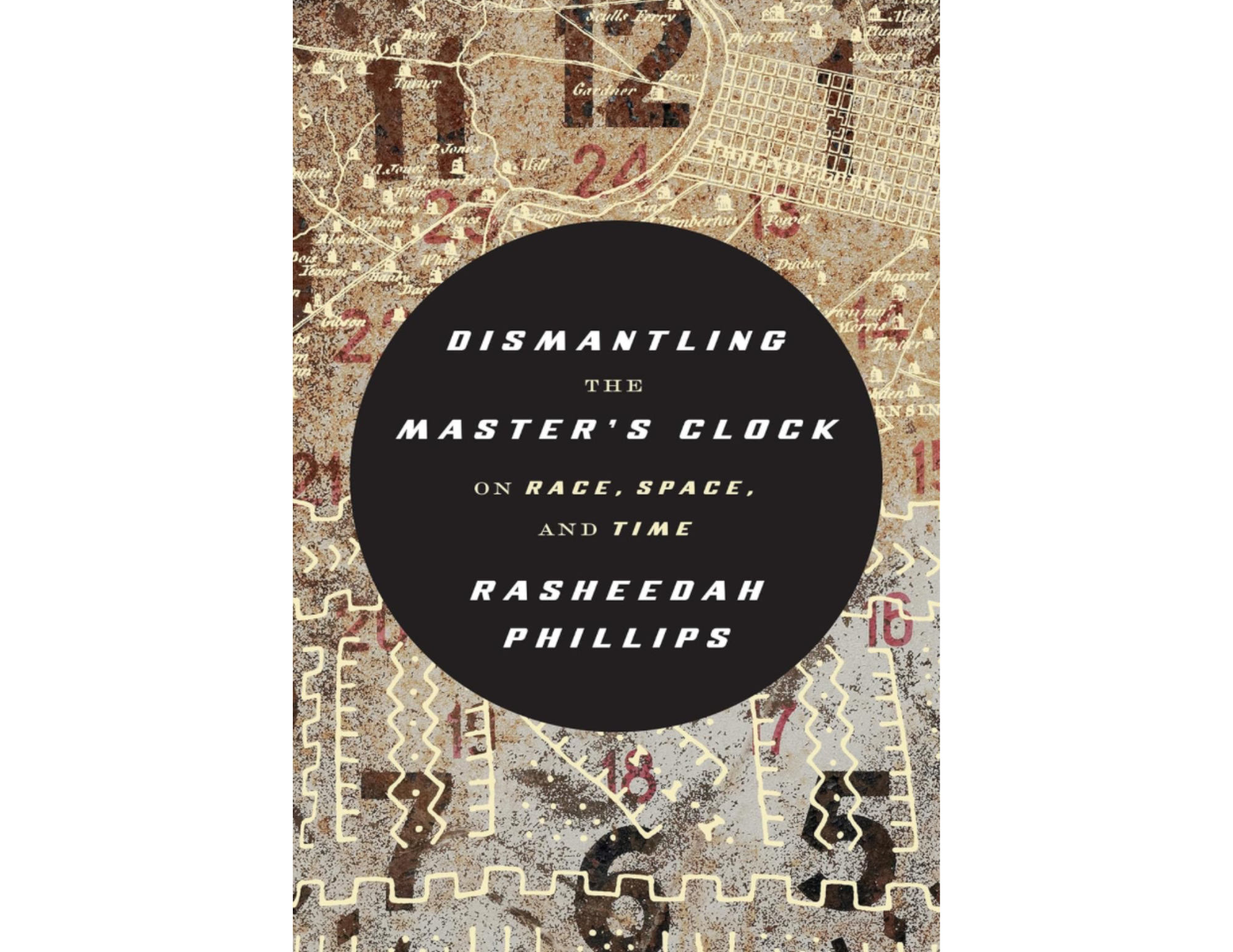What is time? Is it a linear process of seconds, minutes, hours, and days that directs our world and our lives? Is it a built-in biological measuring device for the abstract field in which we live? Does it exist at all? And if it does, is it universal?
These are just some of the many questions Philadelphia-area writer and activist Rasheedah Phillips seeks to explore in her new book Dismantling the Master’s Clock: On Race, Space, and Time. At the book’s crux is the question of racially charged time. Phillips seeks to explore historically and culturally Black experiences of time and ways of keeping time in community. In doing so, she also analyzes the dissonance that happens when hegemonically white institutions seek to force historically and culturally white views of time onto varying marginalized communities. Beyond this, her work analyzes disconnections of communal and interpersonal time which are inherent in the different lived experiences of people and communities. The overall goal of her work is nothing less than a complete transformation of how time is able to exist, through the alterations of perceptions and ideas in her readers and the communities inspired by her book.
Phillips’ Chapter Zero introduces much of the groundwork which her book builds on. She discusses her introduction to feeling displacement in time when she was a law student and young parent and noticed that her experience of moving through time and space was entirely different from the young, mostly white and privileged students she was taking classes with. This realization led her to give her time and energy to various projects meant to reflect and elevate past and future Black experiences of time. She co-founded Black Quantum Futurism, a project dedicated to elevating these same ideals. She wrote Recurrence Plot, a sci-fi collection dedicated to exploring different experiences of Black time. And she ruminated on and developed many of the ideas that would eventually make their way into Dismantling the Master’s Clock.
Many of the chapters of this book revolve in some way around the concept of “CPT,” an acronym Phillips discovered from the Quantum Physics world which stands for charge, parity, and time. Phillips noticed that the acronym was the same as a derogatory phrase meant to imply laziness and “shared lateness” among Black people. Phillips combined these ideas for projects which she undertook with Black Quantum Futurism, meant to interrogate the normative idea of the objectivity of time and the various ways that Black communities have moved through time. This leads her to jump headfirst into the world of quantum physics and begin interrogating various aspects of time that we take for granted and the socio-hegemonic reasons for why we do so. In the very first chapter, she deconstructs the concept of time’s linearity through an investigation relying on the quantum physics concept of charge-parity-time symmetry. Thus disproved, linear time is then interrogated for the colonial impacts which it has had on scientific thought and knowledge.
The rest of the book continues this social-physical interrogation of time. Phillips continues to rely on quantum science to deconstruct accepted ideas about time, but she also expands her survey to the social-cultural implications which these accepted ideas have had on the world. Her ultimate goal is nothing less than an entirely new paradigm for a social understanding of time, not based on the exacting seconds of a work floor’s clock but on shared social and communal realities of the past, the present, and the future. Phillips seeks especially to liberate Black time from the forcible sidelining which it has experienced in western cultural representation. To attain these goals, much of her book is an intentional experiment with time itself which imagines new futures so that the reader may step into and experience them. Rather than using “the master’s clock” to dismantle hegemonic time, she intentionally and expertly constructs time on her own terms in her writing.
Despite its focus on advanced sciences and social theory, this book is extremely accessible in language to the average reader. Phillips uses plain language to present the tools of quantum revolution. The book’s concepts are no more simplified for the direct language used to share them, however, and it often requires reading entire chapters over again while taking notes to get a grasp on her material. When I bought my own copy for this review, the worker at the bookshop informed me that they were still attempting to digest the material months after reading the book. Far from a detriment, this level of detail and depth allows this book to communicate complex and paradigm-shaking ideas in extremely informative ways. Phillips’ words are expansive and exciting, and they do have the power to change your understanding of time forever, just as long as you’re willing to give the book enough respect to put some effort into grasping it.
You can purchase Rasheeda Phillips’ Dismantling the Master’s Clock: On Race, Space, and Time here.
Dismantling the Master’s Clock: On Race, Space, and Time
Rasheeda Phillips
AK Press
September 9, 2025
392 pages

Audrey Boytim is an English major at Drexel University currently developing her senior project in horror metafiction. She is a multimedia artist with several songs, short films, and stories published, and she is currently writing a full length independent horror film entitled “The Bureau.” In her free time you can find her volunteering at Wooden Shoe Books, biking around the city, or kvelling in her yiddishkeit.
